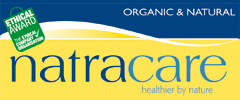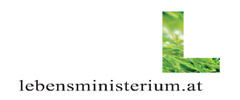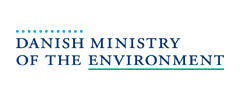EU Toy Industry Would Support Lower Lead Limit Values
Chemical Watch's interview with Alexandra Caterbow, WECF coordinator for chemicals and health
19.03.2012 | Chemical Watch
On the 20th of February, 2012, Chemical Watch published an interview with Alexandra Caterbow, WECF coordinator for chemicals and health, on the new toy safety Directive in the EU.
Please, read the article below or on the Chemical Watch website.
EU Toy Industry Would Support Lower Lead Limit Values
20-Feb-2012
The EU toy industry has said it would support a lowering of the limits for lead in toys following the launch of a consultation on the revision of the limit values for the heavy metal by the European Commission last week.
According to Catherine van Reeth, director general of Toy Industries of Europe (TIE), industry "supports the lowering of limits for lead in toys because this is in response to new scientific evidence". She said that "the toy industry will comply with any legislation based on scientific evidence," but admitted that "we are concerned that a drastic reduction of the limits would result in a de facto ban of toys such as finger paints, chalks and crayons because certain raw materials have naturally-occurring traces of lead, while the level of safety would not increase substantially."
Alexandra Caterbow, coordinator for chemicals and health at the NGO Women in Europe for a Common Future (WECF), told Chemical Watch that her organisation will be contributing to the consultation and that the limit values must be drastically reduced. In the new toy safety Directive, lead is authorised within a limit of 160mg/kg compared to 90mg/kg by the former directive, notes the WECF. "It is a real scandal that the new Directive allows more lead in toys than the old one," says Ms Caterbow. "It is not enough to reduce the limits to the old level, a new approach should go beyond that." She comments that "we all know that lead has very negative effects, even in very low doses, on the developing brain and the hormone system, and is carcinogenic. These adverse health effects are long known and scientifically documented. Lead should have been banned in toys a long time ago."
Further information
- WECF pushes for stronger Toys Safety Directive
- You can download the up to date WECF guide Safe Toys here.
- At our website www.projectnesting.org you can find more information about how to create a toxic free environment for your baby.
- WECF is founding member of the Safe Toys Coalition, a coalition of international organisations working together for a world free of toxic toys. More information is available on the website www.safetoyscoalition.org. You can download the Common Statement here.

Related News
Getting to the Future We Want
4-7 November, Brussels: European Environmental Bureau’s (EEB) Annual Conference
12.11.2018
Human Biomonitoring for Europe
Vienna, 26 September: stakeholder forum
28.09.2018
A life without plastic, wouldn't it be fantastic?!
Interview with Charlotte Schueler of @PlastikfreiLeben, who lives a zerowaste life in Munich, Germany and shares her experiences to her 25.2 thousand followers on instagram & 37.2 thousand followers on facebook
14.09.2018
Calling for periods free from plastic & hazardous chemicals
Letter to Frédérique Ries, MEP, European Parliament on behalf of the #BreakFreeFromPlastics movement
04.09.2018






































